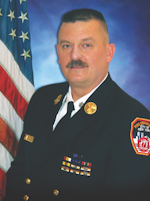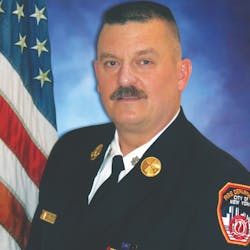Fire department promotional policies and standards play roles in determining the future officers in the organization. What other factors are involved? Does the department provide guidelines that, to some degree, establish the parameters for who can attempt to enter the promotional process? Can any firefighter simply decide to “study” or prepare for the next company officers selection process?
There are ways that a department can take a more active role in the company officer selection process.
Seniority
The first issue that many, but not all, departments consider for the first-level promotion is seniority.
In its simplest form, seniority in a department is how much time that a member has worked there. When a department wants to use seniority in this process, it can be used several ways.
One seniority policy establishes eligibility by setting a minimum number of years of service before a firefighter can file to sit for an exam or other test procedure. Some departments use three years; some require five years. However, after the minimum number of years are worked, it still could be another year or two until the process begins again.
This practice is simple and requires all of the members to work and experience the various aspects and requirements of the job before they even can think about riding the front seat.
Another seniority policy awards points to a firefighter’s grade on a written exam based on the individual’s years of service. Some of these point awards are considerable, and a truly senior firefighter (one who has 10 years on the job) could score a 75 out of 100 on a written exam but end up hundreds of names ahead on the promotional list of, for example, a young firefighter who only has three years on the job but who scored a 90 on the same exam.
Required courses
Another approach that a department can use is to be more involved with the promotional process well before the exam is administered. For example, some departments require interested firefighters to enroll in and complete several training courses in various tactical and technical procedures before they can register to take an exam or to take part in the promotional process. These courses are made readily available over a period of several months or a year, so qualified members can participate. Only members who are eligible by seniority—and then complete the courses—can take the exam. This allows the department to guide the process and to have an effect on which members are eligible.
Qualifications
Steps that must be completed before a member can take a promotional exam for company officer is another way that a department can affect the promotional process.
Some departments require firefighters to qualify as apparatus operators and take that promotion or designation before they are allowed to move on to take the exam for company officer. This requirement assures that all company officers also are a trained apparatus operator and have the skills and abilities that their driver will have when they occupy the front right seat.
Involvement
These promotional policies and practices generally have a positive effect on the process and produce a well-trained, professional officer corps. When a department takes an interest in the process and requires members to be involved before sitting for an exam or other activity, it fosters a positive attitude among the participants. Rather than a circumstance in which a firefighter simply shows up one day for a 100-question exam and then is placed on a list based on a final score, these other eligibility requirements call for a more long-term involvement in the process. More importantly, these requirements allow the department to more precisely choose the firefighters who will fill the company officer ranks and, potentially, the more senior officer positions down the road.

John J. Salka Jr. | Battalion Chief
JOHN J. SALKA JR., who is a Firehouse contributing editor, retired as a battalion chief with FDNY, serving as commander of the 18th battalion in the Bronx. Salka has instructed at several FDNY training programs, including the department’s Probationary Firefighters School, Captains Management Program and Battalion Chiefs Command Course. He conducts training programs at national and local conferences and has been recognized for his firefighter survival course, “Get Out Alive.” Salka co-authored the FDNY Engine Company Operations manual and wrote the book "First In, Last Out–Leadership Lessons From the New York Fire Department." He also operates Fire Command Training, which is a New York-based fire service training and consulting firm.






